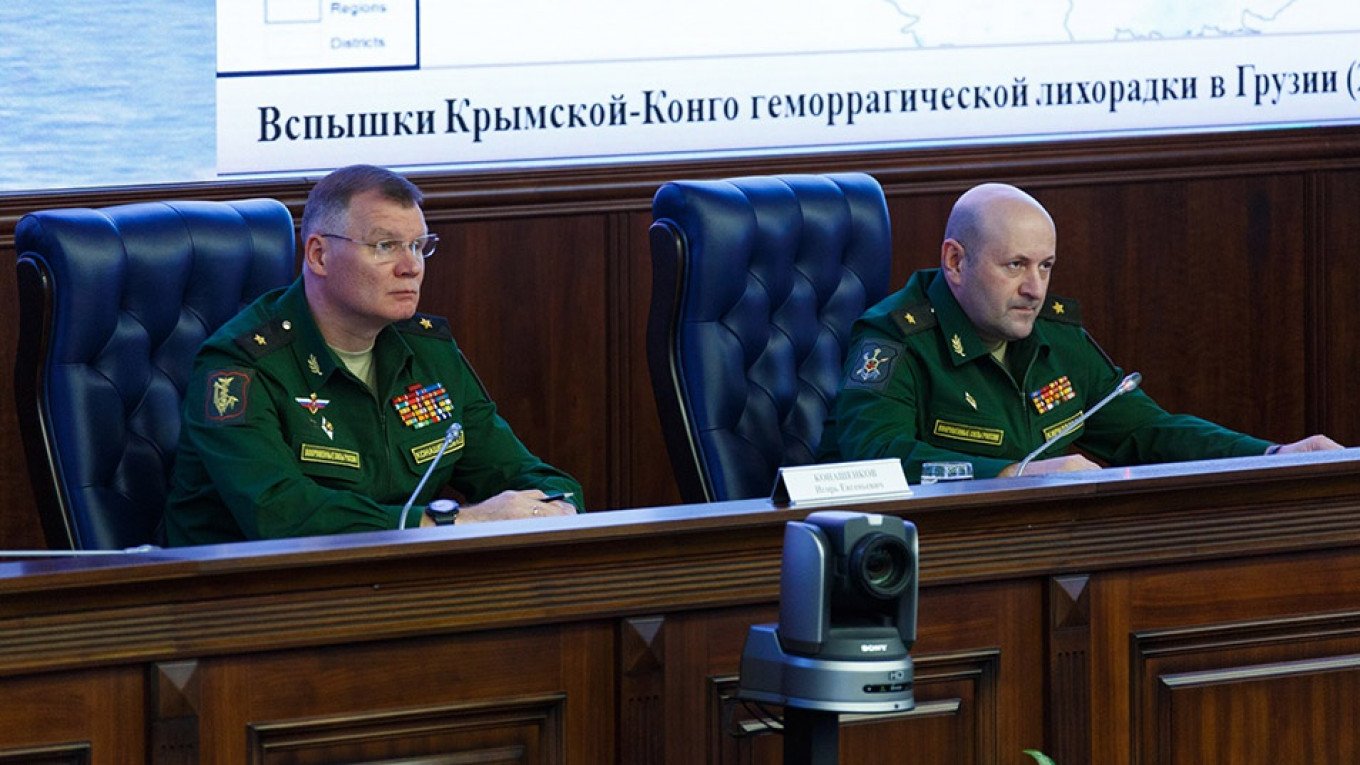
Russian General Accused of War Crimes Killed in Bomb Attack in Moscow
A high-ranking Russian general accused of using chemical weapons in Ukraine was killed on Tuesday in Moscow, Russian authorities confirmed. Lieutenant General Igor Kirillov, head of Russia’s nuclear, biological, and chemical protection forces, died when a bomb, hidden in an electric scooter, detonated outside an apartment building roughly 7 kilometers southeast of the Kremlin.
According to Russia’s investigative committee, the blast also claimed the life of Kirillov’s assistant. The committee labeled the attack as a “terrorist act” and stated that an investigation is underway.
Sources with knowledge of the incident told CNN that Ukraine’s security services orchestrated the assassination.
“Kirillov was a war criminal and an absolutely legitimate target,” a source stated. “He gave orders to use banned chemical substances against the Ukrainian military. This is retribution for war crimes. Justice is inevitable for those who kill Ukrainians.”
Videos circulating on Russian Telegram channels showed the aftermath of the explosion, including emergency responders navigating rubble-strewn streets and bodies lying in the snow. One eyewitness described the event as terrifying, saying, “At first, we thought it was construction noise, but the blast was far too loud. It was very scary.
Valor Under Fire: Honoring Unyielding Bravery and Heroism
The explosive device, containing approximately 300 grams of TNT, was detonated remotely, Russian state news agency TASS reported. The area was immediately cordoned off as investigators, forensic experts, and other officials worked to determine the details of the attack.
Kirillov’s death comes just one day after Ukrainian prosecutors charged him in absentia for deploying banned chemical weapons in the ongoing war. Ukraine’s Security Service claims that over 4,800 instances of Russian forces using chemical munitions were recorded under Kirillov’s orders. These cases primarily involved grenades equipped with irritant chemical agents, including tear gas variants CS and CN, which temporarily incapacitate victims by irritating the eyes, nose, lungs, and skin.
While riot control agents like tear gas are not uncommon in law enforcement, their use in warfare is banned under the United Nations Chemical Weapons Convention. Russia has faced growing accusations of violating this international treaty, with CNN previously reporting on its use of tear gas as a weapon in Ukraine.
Kirillov, a key figure in Russia’s chemical weapons program, had been sanctioned by multiple countries for his actions. In October, the UK imposed sanctions on the general, condemning him for his role in deploying “inhumane chemical weapons” in Ukraine.
The UK Foreign Office described him as a “significant mouthpiece for Kremlin disinformation, adding that he actively spread lies to obscure Russia’s “shameful and dangerous behavior.”
The bombing highlights the escalating personal risks faced by high-ranking Russian officials amid mounting tensions in the war. As investigations continue, the incident underscores Ukraine’s message that those who commit war crimes will face consequences.
This is a developing story, and updates are expected.
The explosion, equivalent to 300 grams of TNT, shattered the building’s entrance and left debris strewn across the area. Videos on Russian Telegram channels showed emergency personnel surveying the scene, with bodies visible in the snow. Witnesses described the incident as “terrifying.”
Kirillov’s death followed Ukrainian prosecutors charging him in absentia with deploying banned chemical munitions. Officials in Kyiv claim his orders resulted in over 4,800 uses of grenades with irritant agents such as tear gas variants CS and CN, which incapacitate victims by irritating the eyes, skin, and lungs. While tear gas is commonly used for riot control, deploying it in warfare violates the United Nations’ Chemical Weapons Convention.
Kirillov was widely condemned on the international stage. In October, the UK sanctioned him for aiding the deployment of “inhumane chemical weapons” in Ukraine and acting as a Kremlin disinformation mouthpiece to obscure Russia’s actions.
The bombing marks a significant escalation in targeted attacks on Russian officials as tensions rise. Ukraine’s actions send a clear message that accountability for war crimes is unavoidable, even for top military leaders.